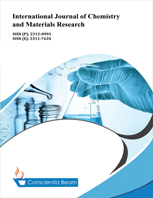Optimization and Predictive Capability of Rsm Using Controllable Variables in Azadiracha Indica Oilseeds Extraction Process
DOI:
https://doi.org/10.18488/journal.64/2015.3.1/64.1.1.10Abstract
In an attempt to optimize the process condition of oil extraction from Neem seeds, Response Surface Methodology (RSM) was explored. 17 experimental runs were generated and were carried out based on controllable variables. The RSM predicted an oil yield (OY) of 45.717% (w/w) at the following control variable condition, ET= 30.00 min, NPW = 30 g and SV= 181.896 mL. Using these controllable variable conditions, the experiment was validated in triplicate and the average OY was obtained to be 45.650 % (w/w). Analysis on physicochemical properties of the OY showed that the oil was golden yellow in colour. The specific gravity and viscosity at 25 oC was found to be0.728 and 20.65 mm2/s, respectively. The percentage moisture content on wet basis and the refractive index at 40 oC were found to be 0.001 and 1.472, respectively. The saponification value and the iodine value were obtained to be 198 mg of KOH/g of oil and 112.31 g of I2/100g oil, respectively. The acid value was obtained to be 3.82 mg of KOH/g of oil while the % FFA was computed to be 1.91. The higher heating value and the cetane number of the oil were also obtained to be 39.63 MJ/kg and 48.60 MJ/kg, respectively. Gas chromatography analysis revealed that the oil is highly unsaturated. This work therefore showed the optimization and predictive capability of RSM in extraction of Neem oils.

